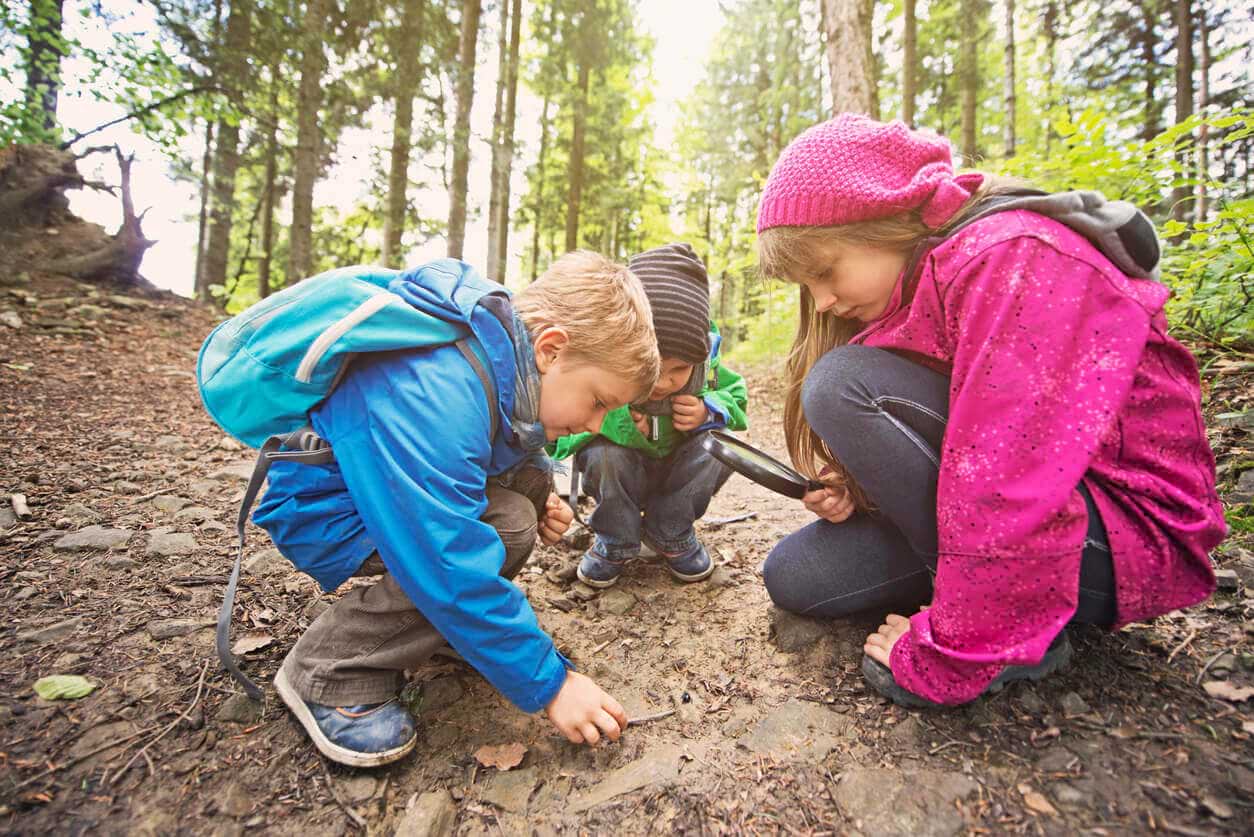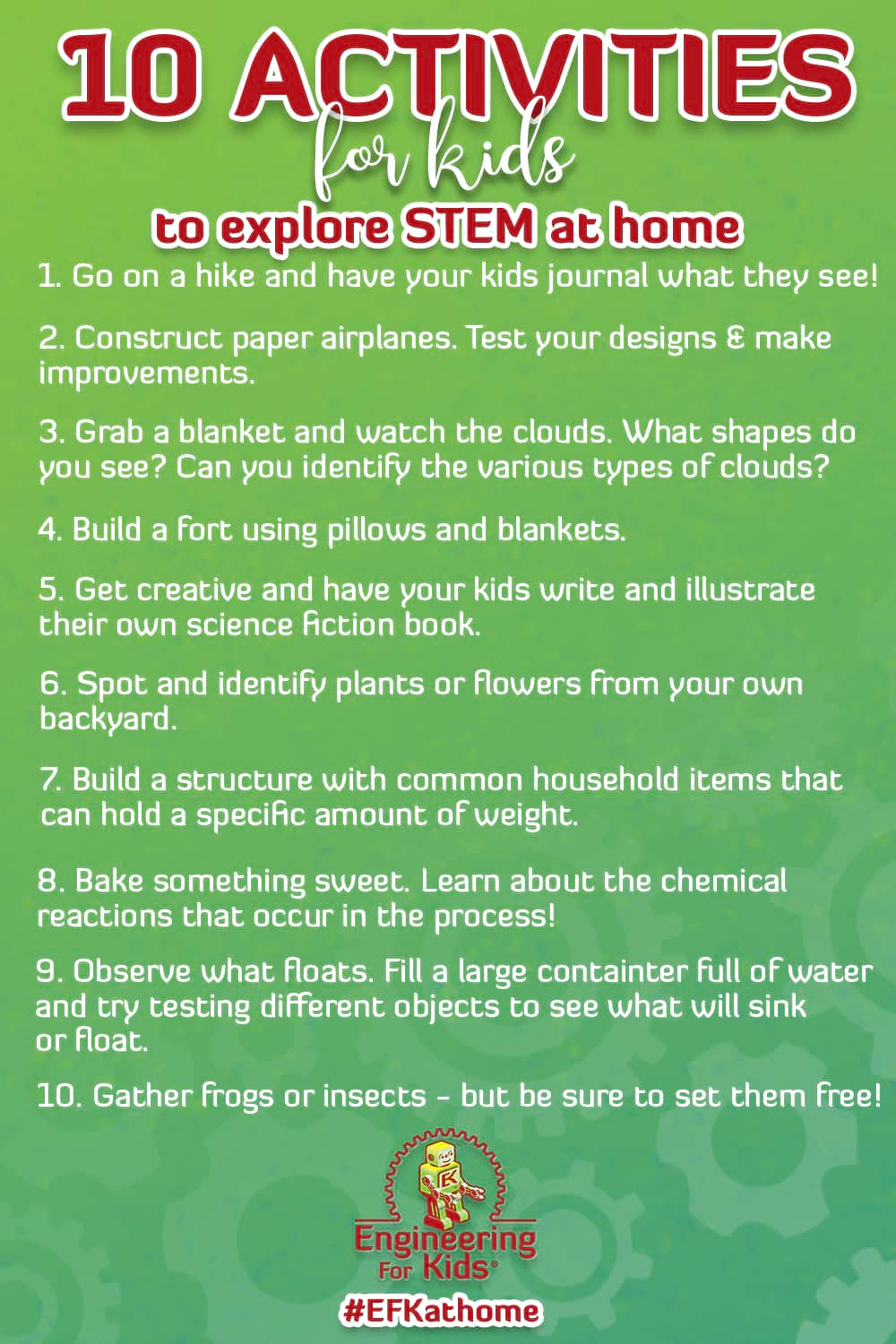
Did you know, introducing your children to STEM skills early on serves as the foundation for a future career?
STEM is an acronym for science, technology, engineering, and math. In today’s world, employers of all kinds are seeking workers skilled in STEM disciplines.
What are some valuable skills learned and developed via STEM activities? We’re glad you asked!
- Problem-solving skills
- Coming up with creative solutions
- Persistence
- Intellectual curiosity
Research confirms the human brain is particularly receptive to learning logic and math between 1 and 4 years of age, so the earlier we can get our youth interested in STEM, the better!
7 Ways to Get Your Kids Excited About Learning STEM Skills
- Head outdoors! Take your young learner outside, whether it’s on a walk in a nearby park or in your own garden, and encourage them to explore nature. Here are some ideas perfect for outdoor STEM learning:
- Go on a walk or a hike and have your kids journal what they see! Start asking “what” questions, so that your child begins to observe and communicate: “What are those birds doing?” “What shapes do those rocks make?”
- On a nice day, grab a blanket and watch the clouds. Ask your child to explain the different shapes they see or ask if they can identify the various types of clouds!
- Gather frogs or insects from your garden, just remember to set them free when you’re finished looking at them!
- Stay inside! There are plenty of STEM activities that can be done from the comfort of your own home. Set up a paper airplane shop at your dining room table, once constructed see how far they can fly and make improvements as needed. You can also do a family baking night to learn more about chemical reactions that occur while cooking sweet treats! Or get creative and have your child write and illustrate their own science fiction book!
- Build things. Building various structures can help expand your child’s engineering and design skills. Have your child grab common household items and build a structure, how much weight can it support? Or challenge your kids to build the best fort they can with pillows, blankets, couch cushions, etc.
- Play with water and blow some bubbles. All childhood musts, but they also help your kids explore some STEM ideas! Water play can introduce them to volume and weight, as you test which objects can sink or float. And blowing bubbles provides the opportunity to study science concepts like light and elasticity!
- Choose games in the edutainment category. There are a number of STEM-related games and gifts on the market, from LEGOs and chemistry sets to DIY robots and Harry Potter coding kits! These games are both fun AND educational, encouraging a foundation for a future love of math, technology, science and engineering.
- Visit a local science museum. Before children can read, they often learn by what they see or do. What better than to get them seeing and doing at a local science museum! Many have a number of interactive exhibits to choose from, in addition to IMAX theaters, planetariums, 3D simulators, and more. And as a bonus, many science and technology museums are offering virtual tours! In some cases, this may mean seeing past exhibits that are now long gone — so cool!
- Don’t rely on school alone. Your child will certainly start dabbling in math, science, technology and engineering subjects during the school year, but if there is a local camp or after school program geared towards STEM learning available, sign them up! The
But where does one find a local camp or after school program? Why at your local Engineering For Kids® of course! We know we’re living through some unique times with the bulk of the country remaining at home. But that doesn’t mean we should stop trying to inspire the next generation of engineers! Contact your local Engineering For Kids® to find out more about all we can offer your child — including virtual programs at many of our locations.

This blog has been updated April 2020




